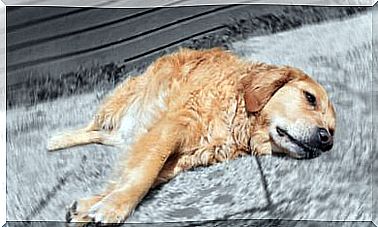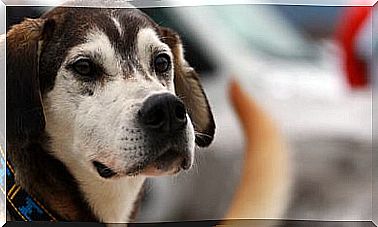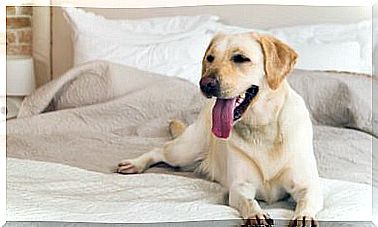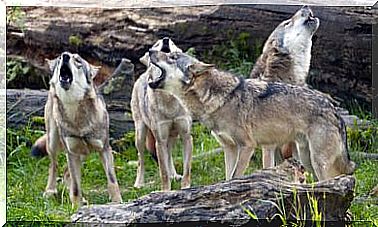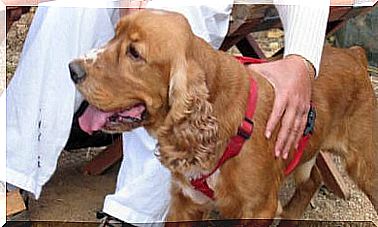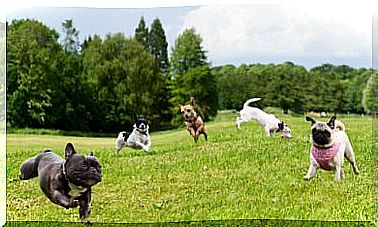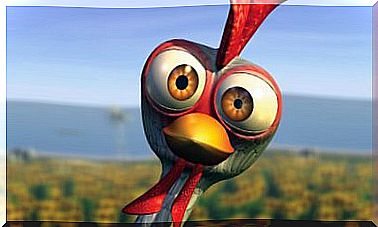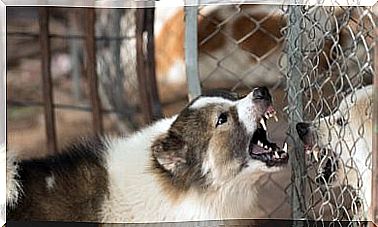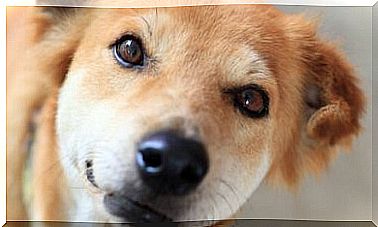What Are The Different Colic Of The Horse?
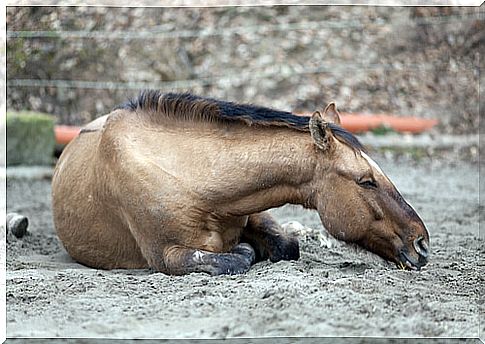
Horse colic is a syndrome that affects the gastrointestinal tract. This means that they comprise a set of health problems that can have different causes and generate complex symptoms.
Various types of colic are recognized in equines, one of the most frequent health problems of the horse. Next, we will talk more about the different types of colic in horses, their possible causes and the symptoms that allow them to be identified.
Symptoms of colic in horses
Colic in equipment involves complex symptoms that can vary depending on the cause of the pain and the animal’s own body. Therefore, in more technical terms, it is said that it is a syndrome of multifactorial etiology.
However, it is possible to talk about some symptoms common to the different types of horse colic, such as:
- Anxiety and nervousness.
- Restlessness.
- Gastrointestinal cramps.
- Excessive sweating
- Abdominal bloating and gas
- Abdominal pain.
- Dehydration
- Constipation.
- Roll over on himself.
- Clumsy or uncontrolled movements, which can lead to self-mutilation.
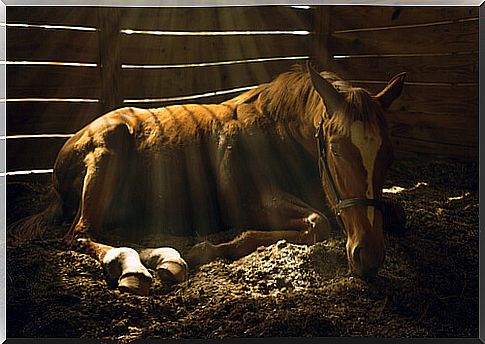
Types of horse colic
The different types of colic in the horse are usually classified according to their cause, the symptoms they cause and the region that is affected. These are the most frequently diagnosed:
1. Obstructive colic
As its name suggests, obstructive colic occurs from an existing obstruction in the horse’s gastrointestinal tract. Natural – or spontaneous – narrowing is usually the most common cause of obstructive colic in equines.
These clogs generally result from eating poor quality hay or straw, which is difficult to digest. But it is also possible that it is related to the ingestion of foreign objects or elements.
2. Flatulent colic
This type of colic in the horse derives from flatulence, that is, from the accumulation of gases in the intestines. The fermentation produced by the bacteria of the intestinal flora leads to an intense distention of the abdomen and the intestinal mucosa, which generates acute pain in the equine.
Flatulent colic almost always occurs when equines consume feed or another type of food excessively or too quickly.
3. Ischemic colic
Ischemic colic usually occurs from a reduction in blood flow to the abdominal wall. In general, this deficiency in the circulation and oxygenation of the gastrointestinal tissues is associated with an infestation of endoparasites.
Strongyles, also known as small red worms, are one of the most common intestinal parasites in horses and the main cause of ischemic colic.
4. Spasmodic colic
Spasmodic colic generally occurs after ingesting very cold water or in large quantities very quickly. However, they can also derive from viral or bacterial infectious processes, which are usually associated with diarrhea in horses.
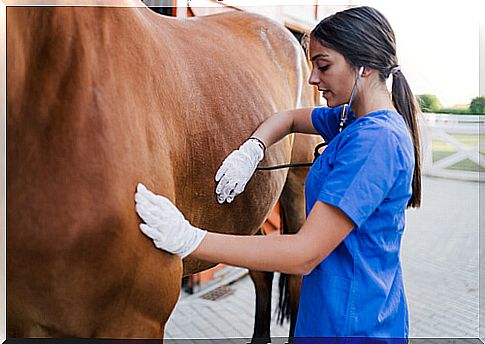
Treatment of horse colic
The treatment of colic in the horse will depend fundamentally on the cause and the state of health of the animal. Generally, this treatment will always focus on relieving pain and abdominal distention to improve the quality of life of the animal.
In case the presence of intestinal parasites is diagnosed, the veterinarian will administer the necessary products to eliminate them. During this visit to the veterinary clinic, the expert will also review the horse’s vaccination schedule to update its immunization and prevent other diseases.
The professional will also pay special attention to the nutrition and eating habits of the equine. To choose the right treatment, you will mainly analyze the quality of the hay used in your diet, habits and feeding times.
Possibility of surgery
Eventually, if the horse has ingested foreign bodies, the need for surgical intervention to relieve the narrowing of its intestines should also be considered. Fortunately, this does not happen in too many cases.
Finally, it should be noted that the environment where the equine lives can also favor the development of colic. Being so sensitive animals, they easily perceive changes in their environment and can suffer from stress.
When planning stables and facilities, it is essential to provide a calm and positive environment for your horses, where they find the optimal conditions to develop physically and mentally. This will have a decisive influence on your later health.
